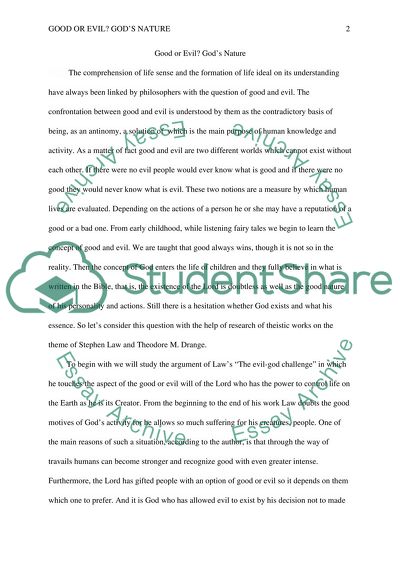Cite this document
(The Relevance of the Daily Struggle Between Good and Evil Essay Example | Topics and Well Written Essays - 1500 words, n.d.)
The Relevance of the Daily Struggle Between Good and Evil Essay Example | Topics and Well Written Essays - 1500 words. https://studentshare.org/philosophy/1683657-the-relevance-of-the-daily-struggle-between-good-and-evil
The Relevance of the Daily Struggle Between Good and Evil Essay Example | Topics and Well Written Essays - 1500 words. https://studentshare.org/philosophy/1683657-the-relevance-of-the-daily-struggle-between-good-and-evil
(The Relevance of the Daily Struggle Between Good and Evil Essay Example | Topics and Well Written Essays - 1500 Words)
The Relevance of the Daily Struggle Between Good and Evil Essay Example | Topics and Well Written Essays - 1500 Words. https://studentshare.org/philosophy/1683657-the-relevance-of-the-daily-struggle-between-good-and-evil.
The Relevance of the Daily Struggle Between Good and Evil Essay Example | Topics and Well Written Essays - 1500 Words. https://studentshare.org/philosophy/1683657-the-relevance-of-the-daily-struggle-between-good-and-evil.
“The Relevance of the Daily Struggle Between Good and Evil Essay Example | Topics and Well Written Essays - 1500 Words”. https://studentshare.org/philosophy/1683657-the-relevance-of-the-daily-struggle-between-good-and-evil.


